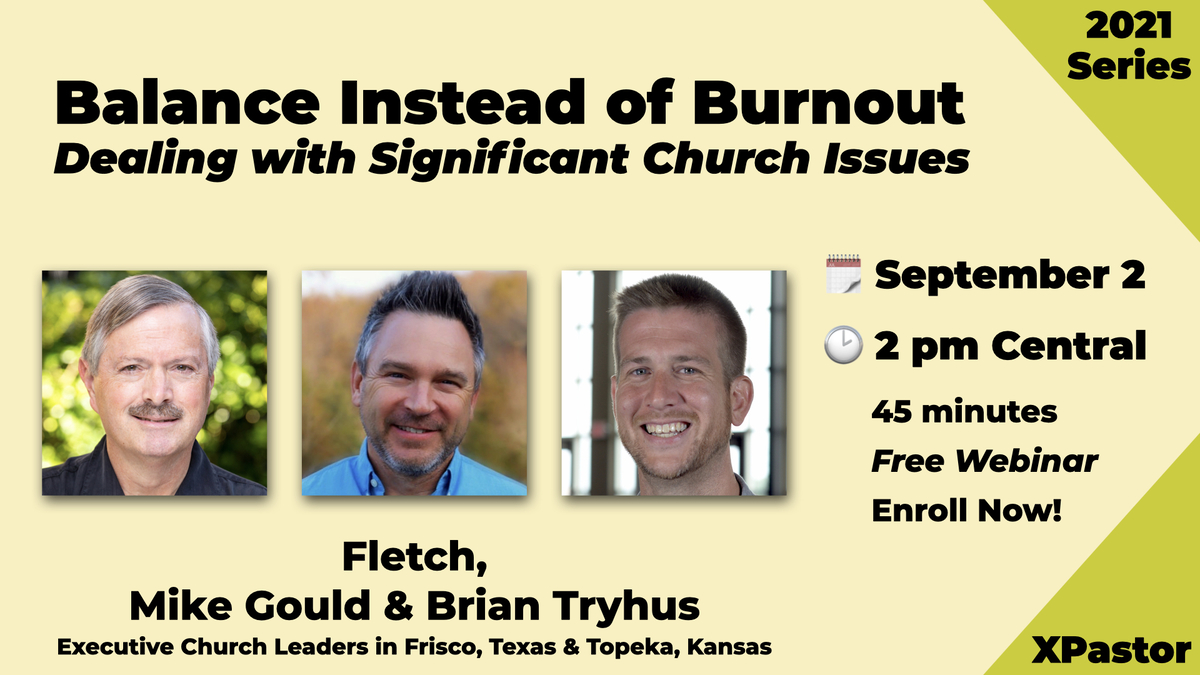Does it feel like helping others is sometimes hurting you more? Are you taking deliberate steps to manage stress in your life? Everyone experiences stress. Even good events like weddings, births, and graduations create stressful conditions. Prolonged negative stress creates changes in your brain which steal your ability to think clearly and wear down your bodily functions. Researchers have shown that upwards of eighty percent of doctor visits are somehow stress related. The negative physical effects of stress will always lead to burnout if unattended to. Pastors, missionaries, church leaders, Christian ministry leaders, counselors, crisis responders, and other leaders must give themselves permission to rest or else their ability to care for others will disappear. As my former professor, Eric Scalise, says, “If you’re always last, you won’t always last.”
People in the ministry and helping professions must pay special attention to stress. Not only do they have to manage their own personal lives, the people they are trying to help often bring tough circumstances and great expectations for miracle solutions. Helpers feel responsible to help people become successful. When people do not live up to the helper’s expectations, the helper can take it personally, carrying too much of the responsibility. Failed expectation is the primary cause of stress. Not only do helpers have great expectations for themselves, but those being helped often have unrealistic expectations for helpers. Leaders are not allowed to fail, right? Perfection is often the measure of success for the person in charge. Not only that, but if there are ten followers, there are likely at least ten views of perfection to live up to. You can’t please everyone and you can’t let other peoples’ expectations define yours. Some may have legitimate expectations, but the composite effect of everyone is often impossible to meet.
For Christian leaders, I recommend a book by Paul Cox entitled, Sacrifice the Leader: How to Cope When Others Shift Their Burdens onto You. He helps you understand how to avoid situations; for example, when someone opens up to you about his or her burden and pain, and suddenly you find yourself distanced, ridiculed, or even blamed for issues for which you are not responsible. Dr. Cox shares about interpersonal dynamics, listening skills, and the steps a leader can take to avoid becoming the scapegoat for someone else’s baggage. I have personally benefited greatly from the material in Cox’s book.
Last winter gripped many parts of our nation with record cold temperatures and more than average snowfall. One day I stared out my window, gazing at the white backyard. I could only imagine the green grass and luscious plants in the garden just five months before. For crops to grow here in the northeast, all four seasons are necessary to fulfill the growing cycle. I was reminded that winter, for example, even with the cold and longer nights, serves a needed function of giving the soil rest and dormancy. Each year, winter anticipates summer and summer anticipates winter. Seasons come and seasons go.
Human life also happens in seasons. Sometimes it’s difficult to discern the transitions between when a new season is coming and an older season is going. The age-old truth governs life, “What you sow is what you reap.” Good seed must be sown in good soil to have any chance of reaping a good harvest. A season of harvest must be preceded by a season of preparation. Most of us have no problem accepting that truth. But another truth follows. The harvest season is followed by a season of rest. Most of us agree that rest is a good thing, but how well do we practice it? Our performance-driven culture wants us to tolerate higher and higher levels of stress. Those we’re trying to help need examples of how to buck this trend. They need rested helpers. They need helpers who will last more than one season of production. Seasons of rest are needed between seasons of production. Maybe it’s time to consider what is keeping you from getting the rest you need.
There are two types of stress every pastor or caregiver deals with. There is the stress of the service/ministry, and then there is the stress you bring into the ministry. Compassion fatigue is a term sometimes given to leaders or helpers who become weary in the service they perform. But this stress is only compounded when the helper fails to recognize the stress of their personal lives they are bringing into their situations. Who we are as a person cannot be separated from what we do and how we perform. Most of us could benefit by looking inside to see what kinds of stress we are bringing into our circumstances.
In a webinar presented by the American Association of Christian Counselors (AACC), Dr. Eric Scalise shares six signs of being over-stressed:
1. A preoccupation with stressed out people.
If you tend to always gravitate to busy, extremely hard-working, or other stress-accommodating type people, it is easier to remain blinded to your own stress.
2. Over indulge in “escape behaviors.”
Escape behaviors (addictions or things you over-indulge in for satisfaction and comfort) can become a problem for you as a leader in the same way it is a problem for those you are trying to lead.
3. Avoid intimacy and seek fantasy over reality.
If you discover that distance is developing between you and those you love most, and that you need more fantasy/entertainment to maintain your sanity, perhaps this says more about you than the others you are in relationship with.
4. Control everything and everyone in order to survive.
Desire for control may indicate unhealthy, fear-based reactions to people and circumstances. Turning into a “control freak” only narrows and shrinks possibilities rather than expanding or enhancing them. Protecting your need to be needed indicates misplaced identity in your role.
5. Justify actions by blaming others.
Blaming may be a way of covering your own disappointment with failed expectations of yourself.
6. Choose to leave or quit ministry.
This may indicate a “flight” response which is rooted in something hidden and not yet discovered about how you can change as a person.
On a personal note, I would like to add an item to this list—the failure to understand and practice the grace of forgiveness. Scripture says, “See to it that no one falls short of the grace of God and that no bitter root grows up to cause trouble and defile many” (Heb. 12:15). Unforgiveness gets lodged in a person’s heart when stressors and disappointments turn into critical judgments, causing bitterness and resentment, which causes more offense, which creates a cycle of defilement and defeat. I researched the topic of forgiveness for three years to write a dissertation for my seminary doctorate. I later added to this material and authored a book called, Escaping the Pain of Offense: Empowered to Forgive from the Heart. The book focuses on finding freedom through inner person change in surrendering to God the rights of judgment. I have learned much about forgiveness and stress relief through personal experience, and I witness it over and over in the lives of those I counsel and teach.
Space does not permit me to unpack the list above more thoroughly, but if some apply to you, you are likely bringing stress into your leadership or helping role. Perhaps it is time to consider what should be done to reduce the stress. Next, I would like to share some ideas on how to maneuver out of a season of stress and into a new season.
Again, stress is common to all persons, and those in the business of helping others can find themselves at greater risk of missing signs of too much stress that leads to disastrous results. Intentional effort must be given to alleviate the negative effects of stress in life and leadership activities.
In the AACC webinar, Eric Scalise went on to share fiften principles of self care:
1. Don’t take your identity from your work.
Who you are as a person is not defined by what you do as a professional or volunteer. For the Christian reading this, you are first a child of God. Your sonship or daughtership is the most important thing about your being. It defines who you are and your purpose for being and doing.
2. Learn what it means to have joy.
Happiness is based on mood, while joy is intentionally made. Joy is produced by cultivating a grateful heart. Finding things for which to be thankful, in the midst of difficult circumstances, produces the fruit of joy.
3. Learn to depersonalize the process, and limit your time around negative people.
Intentionally spend time around healthy people. Consider your limitations for handling negativity. No matter how spiritual we wish to be, our humanity cannot be ignored.
4. Rest because God created rest.
Sabbath rest may mean something different to you than other people. Discover the difference between things that drain you and things that energize you and spend appropriate time replenishing your strength.
5. Sleep.
Recent research shows how sleep literally can regenerate your brain. Depriving your body of enough sleep wears it down more quickly. Consuming caffeine before bedtime severely compounds the problem of too few sleep cycles per night.
6. Diet and exercise.
What you consume becomes what your body is made of. Consume nourishing foods and your body is nourished. Consume junk, and your body becomes junk. Your body needs lots of water. Drink water, even when you’re not thirsty.
7. Learn to be silent and still.
Extended reflection and contemplation time is one of the most valuable yet least practiced activities of the day. Luke 5:15-16 and other accounts show the example of Jesus in intentionally limiting ministry time.
8. Create outlets to avoid stagnation.
Nothing can live in the Dead Sea because it has no water flowing out of it. Our spirit needs a life-giving flow out, as well as a life-receiving flow in.
9. Seek to give your burdens to God every day.
1 Peter 5:7 says, “Cast your cares upon him …” In Matthew 11:29-30, Jesus says, “Take my yoke upon you and learn from me …” We should ask ourselves regularly, “Am I carrying a burden I should be giving to the Lord?” Or, “Am I carrying someone’s burden (for them) that I should be letting them give to the Lord?”
10. Learn to “triage” your daily events.
Not everything that is urgent is important, and not everything that seems important to others is urgent for you. Set priorities and stick to them. Let others do things, especially things they can do more efficiently than you.
11. Learn to have realistic expectations.
It’s not about you (whatever it is). Life’s meaning is found in pursuing God’s design and purposes. People you lead or work with are at differing degrees of knowledge and motivation in that pursuit.
12. Seek to resolve those things that can be accomplished quickly and easily.
Especially when you’re stuck, don’t work on the twenty percent of the more difficult tasks on your to-do list. Fast and simple progress can help create inertia.
13. Learn to manage your time by saying “no.”
Set boundaries for yourself. Don’t get pulled into other people setting your boundaries for you. There will always be people that have “important” things for you to do.
14. Learn to delegate to others whenever and wherever possible.
Someone has said, “Cemeteries are full of indispensable people.”
15. Find one or two key people to whom you can be accountable.
Be completely honest, vulnerable, and transparent with someone close. Isolation is the number one enemy strategy to take out a leader.
Let me encourage you to take some reflection time to take an honest and hard look at these qualities in yourself. Ask someone close to you how they see your ability to achieve these things. Most importantly, spend some time in prayer and listening to God for His direction in how to respond. What is the specific item(s) God may want you to focus on right now at this point in your life? What specific action steps will you take to pursue the change needed to be where you believe God would want you to be in a week? A month? A year?
Take time to de-stress, so that you can be all that God made you to be, and continue helping others be all God made them to be!











